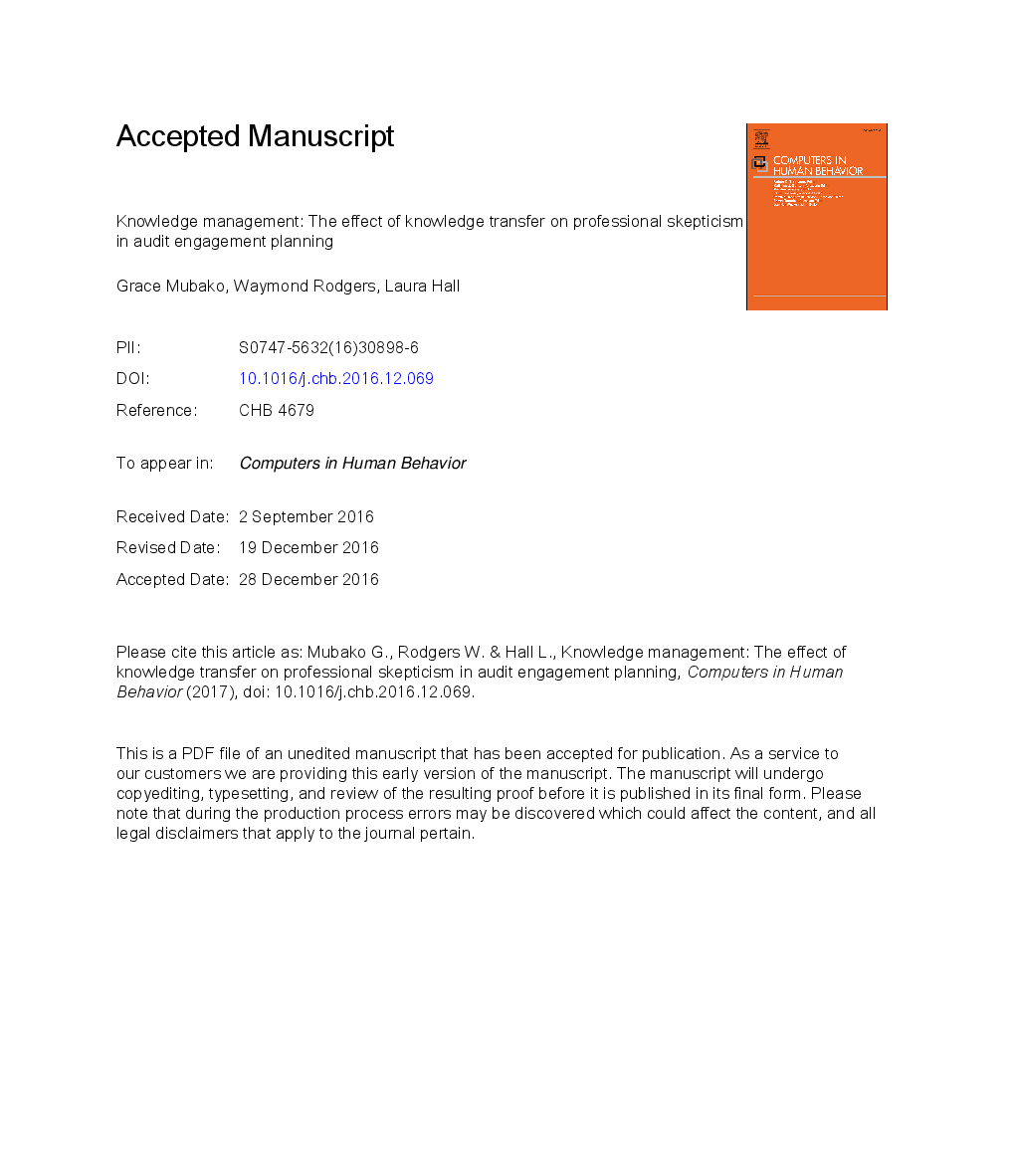ترجمه فارسی عنوان مقاله
مدیریت دانش: اثر انتقال دانش بر شک و تردید حرفه ای در برنامه ریزی تعهد حسابرسی
عنوان انگلیسی
Knowledge management: The effect of knowledge transfer on professional skepticism in audit engagement planning
| کد مقاله | سال انتشار | تعداد صفحات مقاله انگلیسی |
|---|---|---|
| 82512 | 2017 | 46 صفحه PDF |
منبع

Publisher : Elsevier - Science Direct (الزویر - ساینس دایرکت)
Journal : Computers in Human Behavior, Volume 70, May 2017, Pages 564-574
ترجمه کلمات کلیدی
مدیریت دانش، یادگیری سازمانی، انتقال دانش، تصمیم سازی، تجربه و تخصص، برنامه ریزی حسابرسی
کلمات کلیدی انگلیسی
Knowledge management; Organizational learning; Knowledge transfer; Decision making; Expertise; Audit planning;
ترجمه چکیده
هدف از این مطالعه بررسی میزان انتقال دانش شناختی و همچنین متغیرهای دیگر به تاثیر بر میزان شک و تردید حرفه ای در حسابرسان است و به پرسش مهم در مورد چگونگی ارتباط صلاحیت و تخصص حسابرسان با فرایند انتقال دانش . این پژوهش تلاش می کند تا این مولفه ها را در یک مدل تجربی تست کند، آنها را تجزیه می کنند و نشان می دهند که چگونه شک و تردید را با مقایسه چگونگی انتقال دانش در کارشناسان نسبت به تازه کارها نشان می دهد. نتایج این مطالعه نشان می دهد که تفاوت بین حسابرسان متخصص و تازه کاران، حمایت از نقش دانش و تخصص را در بهبود شک و تردید در برنامه ریزی تعامل تقویت می کند. نتایج مطالعه نشان می دهد که انتقال دانش نقش مهمی در افزایش شک و تردید حرفه ای حسابرس دارد، در نتیجه، بهبود صحت تصمیم گیری های حسابرسان. همچنین، به عنوان پیشنهاد شده توسط نلسون (2009)، دانش، موقعیت و قضاوت کارشناس، عوامل مهمی در برنامه ریزی یک حسابرسی بود. با این حال، اثرات صوری (همانطور که توسط اثرات شرکت گرفته شده) در توضیح قضاوت حسابرسان مهم نبود. این نتایج مهم هستند زیرا اهمیت نقش توزیع دانش در تسهیل اجرای حسابرسان حرفه ای را در برنامه ریزی درگیر شدن در حسابرسی نشان می دهد.

